2020-10-20
The ICCA peer support and review process in Ecuador
How is ICCA peer review carried out in Ecuador?
In Ecuador, peer review is an integral part of the community consultation process. It is the culminating moment of the local community or indigenous people consenting to register their territory of life in the ICCA Registry and/or Protected Planet, managed by UNEP-WCMC.
The recognition is made by a person delegated by the governing system of the community or indigenous people. This delegated person has been part of a technical team that has participated in the following capacity building activities:
- The essential characteristics of ICCAs
- Community mapping
- The ICCA registry
- Territorial rights of indigenous peoples and local communities.
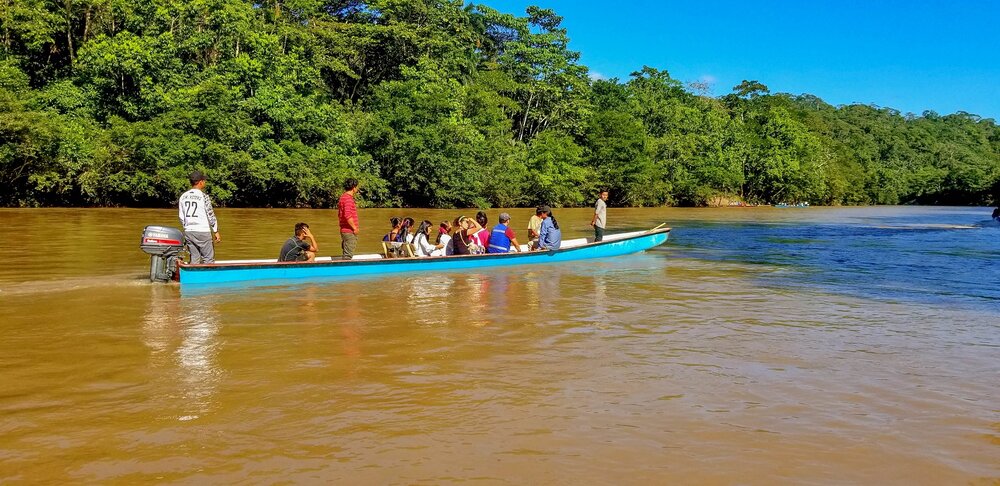
How was the peer review process developed?
The person responsible for the peer review made a field trip to get to know the ICCA. She spoke with representatives of the community governance system to understand the decision-making practices, uses and customs. She participated in the assemblies where registration of the territory into the databases was agreed. She documented the recognition in a participatory technical sheet designed for this purpose and signed the sheet in the name of the community or town she represented, which was also registered in the ICCA Registry.
Recognition among the different peoples and communities arose fluidly in the national workshop that was held in Quito in May 2019. At this meeting the different community technical teams agreed to recognise each other as pairs:
- Playa de Oro ICCA and Agua Blanca ICCA, which are communities on the coast.
- Shuar Arutam ICCA and Sarayaku ICCA who are Amazonian indigenous peoples
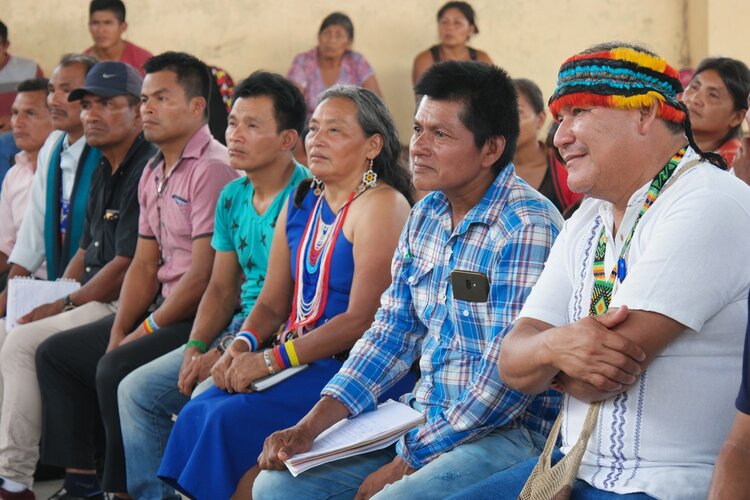
Has the peer review process changed over the years?
This is the first time that a peer review process has been done for the ICCA registry here in Ecuador. The methodologies were designed in a participatory manner in 2015 and were implemented since 2016 with the self-strengthening phase. This phase included community mapping and applied research which resulted in a case study of the territory of life, or ICCA, that was shared with UNEP-WCMC.
From 2018 to 2020, the community consultation was carried out for the registration of the territories of Playa de Oro, Agua Blanca, Pueblo Shuar Arutam and Pueblo Originario Kichwa de Sarayaku in the ICCA Registry and Sarayaku also registered its territory in the WDPA.
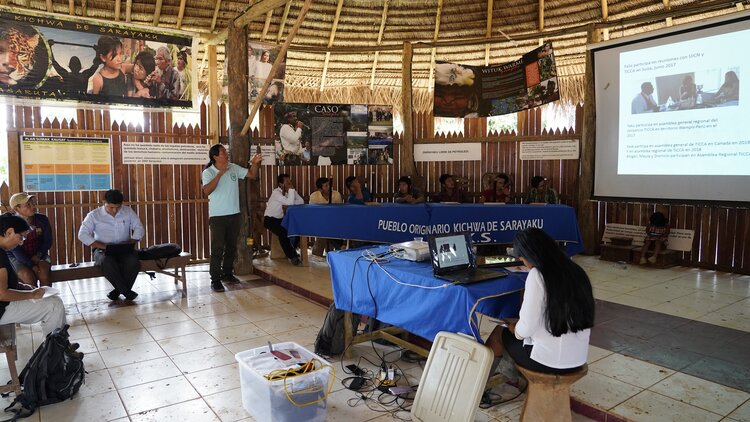
What works well in the peer review process?
In the recognition among peers, the direct and in-person accompaniment of the technical team of the project was key. This project promotes the recognition of territories and areas conserved by indigenous peoples and local communities (ICCAs), Ecuador, through the Small Grants Program (SGP / GEF / UNDP).
The field work of the project's technical team was the main work tool for strengthening capacities on ICCAs and for facilitating the use and management of the files, and the community guide on community consultation.
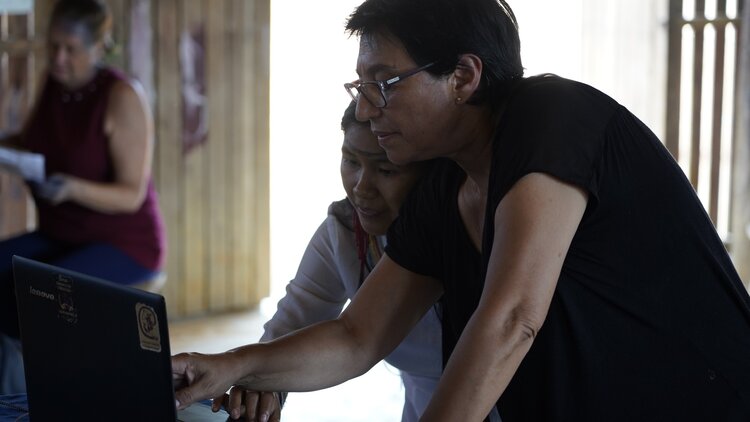
What is not working so well in the peer review process?
In Ecuador, resources were needed so that those responsible for peer recognition could travel the territory and participate in the informative workshops held in the communities, especially in the vast territories of the Amazon.
One element to consider is the limited access of communities and peoples to the internet and the use of digital media and written materials. Therefore, it was necessary to have resources from the project's technical team to provide direct and face-to-face monitoring.
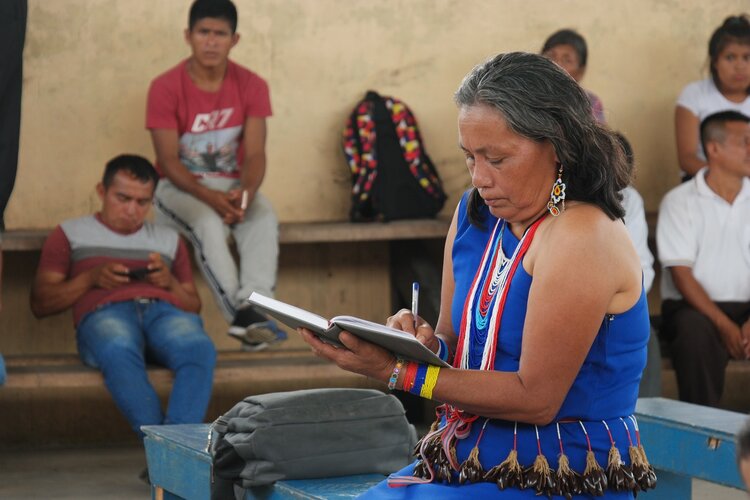
What advice do you have for other countries that are trying to establish a peer review network?
It is important to identify other successful experiences of peer recognition for the registration of territories in the ICCA Registry in order to exchange experiences and tools. It is essential to have resources that can sustain a registration process at the national level. In the case of Ecuador, the Small Grants Program as executor of the initiative has been key to the proper functioning of this mechanism due to its great knowledge and experience in community work.
Background
'Promote the Recognition of Territories of Life (ICCA)' project in Ecuador began in August 2018 and ended in June 2020, consolidating the self-strengthening process that was carried out with the OFIS Foundation from the end of 2016 to mid-2018. This project is part of the ICCA Global Support Initiative (ICCA - GSI) to support the territories and areas conserved by indigenous peoples and local communities. It was operated by the Small Grants Program in Ecuador (SGP / GEF / UNDP) through the ALDEA Foundation to provide legal, technical and strategic assistance with an interdisciplinary, intercultural and gender vision, under an approach oriented to collective and gender rights.
The project sought to consolidate the self-strengthening process of seven Territories of Life (ICCAs) in Ecuador, promote their recognition at the local and national level and provide technical support to the internal consultation process to decide on the registration of ICCAs in the ICCA Registry, managed by UNEP-WCMC.
Written by Mencha Barrera, former co-ordinator for the ICCA Ecuador Project, Small Grants Progamme (UNDP GEF SGP) 17/08/2020, published by UNEP-WCMC 20/10/20
- Playa de Oro ICCA Link
- Pueblo Shuar Arutam ICCA Link
- Pueblo Originario Kichwa de Sarayaku ICCA Link
- Feel, Decide, Care: Community guide to registering territories of life (in Spanish) Link
- In communities we decide: Strategy for community consultation and registration in the ICCA Registry (in Spanish) Link